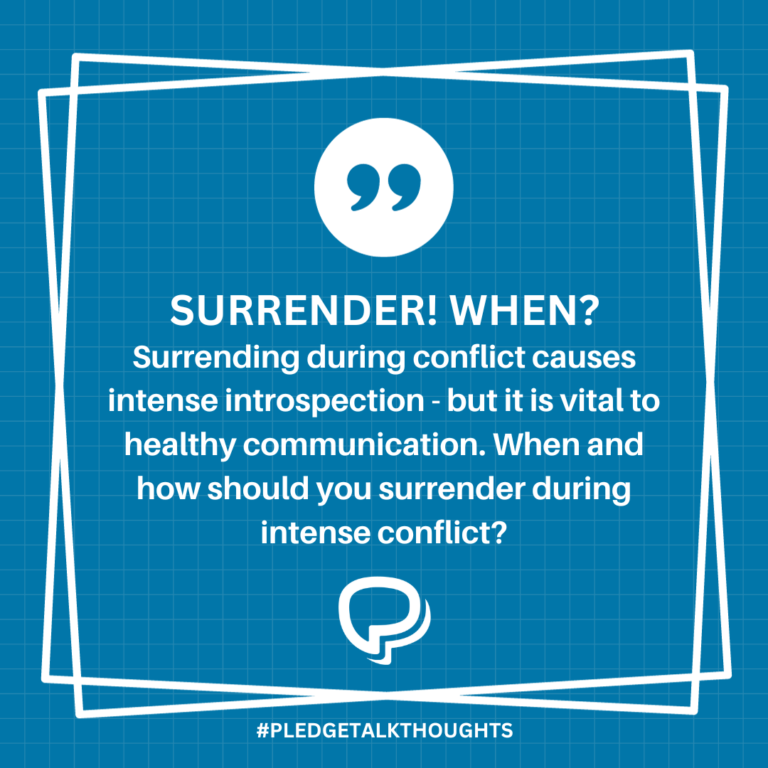Further Thoughts on SURRENDER! Where? When? Why? 10/27/23
Image by Paul Zilvanus Lonan from Pixabay
I first had the notion of “surrender” come to mind when I recently imagined how I would respond to my wife after listening to her side of the conflict:
- I observed that I had a type of “but” in my first sentence
- I could hear “tone” in my voice
- I saw how quickly I would jump in as soon as she was finished talking
- I felt how eager I was to get to my point rather than affirm hers
That’s when I heard in my head:
“Surrender!”
I didn’t like the idea. My reaction to what I had “heard” made me suspect this was something I ought to pay attention to. Suggestions of personal growth are rarely first welcomed with glee.
I kept musing… Succumbing to the idea of surrender might not benefit me. It might be hard or costly.
It’s so often difficult – even for me – to communicate in love the way I teach others to with PLEDGEtalk.
When we are unwilling to surrender the felt right to give our perspective in a conflict, it is often indicative of further work needing to be done in us. Consider what I mean with each of the four bullet points above:
- Why would I start with a “yeah, but” statement? Am I unwilling to appreciate or validate my wife’s thoughts or feelings?
- Why “tone” in my response? Was I seeking to shame my wife or put her in her place?
- Why jump in so quickly? Was I really listening to her in the first place? If not, why not?
- Why was I so eager to get my point across? Do I think my thoughts and feelings are more important than hers?
I hope you can see the need I had for self-examination before I proceeded with the conversation. The word “surrender” was exactly what I needed to hear, and needed to heed. I needed to surrender my felt right to react in any of the above ways. For me to do anything else at the moment, would not have been in line with love. At the very least, my wife would have felt missed, and at the most, she would have felt shamed, hurt, and attacked. All at the expense of my reacting out of a feeling like I had the right to do so.
Here me closely: I am not saying we cannot or should not give our perspective on a matter. What I am saying is, we must spend time considering what is happening inside us before we do. We must aim to love above all else.
Zerrin and I did continue the conversation. And I did share my thoughts and feelings – but later than I initially felt like doing so. Only after noting what was happening inside me, and choosing instead to love was I ready to share. It made all the difference in the world!
Can you give me a one-word reaction below?
Mark Oelze, Author/Creator of PLEDGEtalk





Leave a Reply
Want to join the discussion?Feel free to contribute!